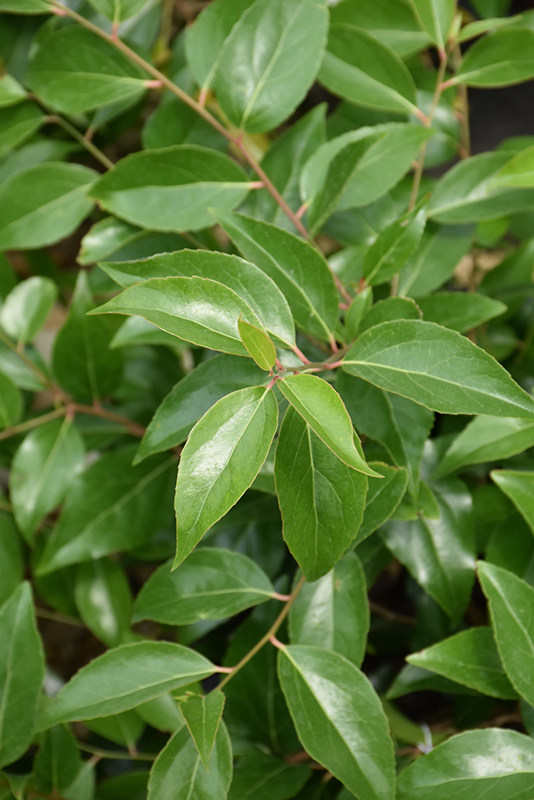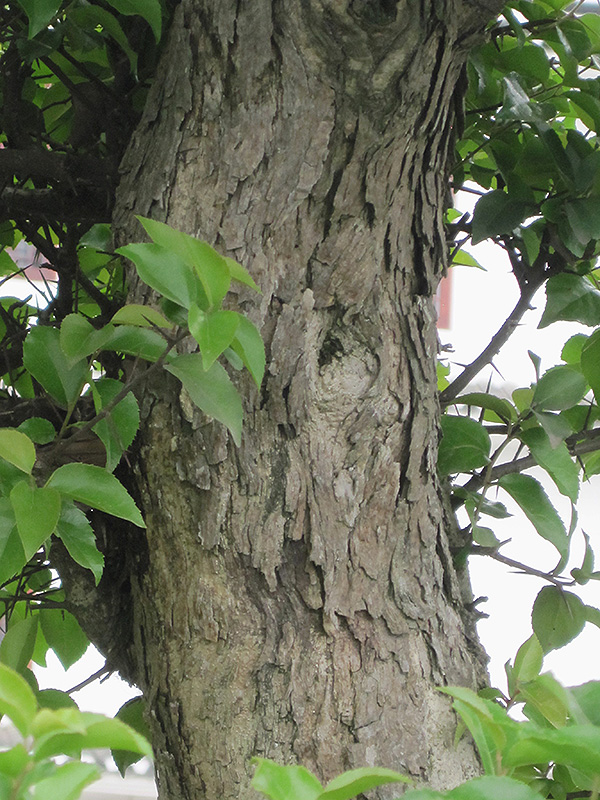Height: 15 feet Spread: 10 feet
Sunlight:
Hardiness Zone: 7b Other Names: Xylosma congesta, syn. Xylosma japonica Description: This spreading, evergreen shrub will grow quite large but can be contained by pruning; grown primarily for its beautiful shiny green foliage that is evergreen in near-frost-free climates, roots are hardier; will host giant white fly Ornamental Features Shiny Xylosma has attractive dark green evergreen foliage which emerges coppery-bronze in spring on a plant with an upright spreading habit of growth. The glossy pointy leaves are highly ornamental and remain dark green throughout the winter. It features subtle clusters of chartreuse pincushion flowers along the branches in mid fall. The rough gray bark is extremely showy and adds significant winter interest. Landscape Attributes Shiny Xylosma is a multi-stemmed evergreen shrub with an upright spreading habit of growth. Its average texture blends into the landscape, but can be balanced by one or two finer or coarser trees or shrubs for an effective composition. This shrub will require occasional maintenance and upkeep, and can be pruned at anytime. Gardeners should be aware of the following characteristic(s) that may warrant special consideration; Shiny Xylosma is recommended for the following landscape applications; Planting & Growing Shiny Xylosma will grow to be about 15 feet tall at maturity, with a spread of 10 feet. It has a low canopy with a typical clearance of 2 feet from the ground, and is suitable for planting under power lines. It grows at a medium rate, and under ideal conditions can be expected to live for 80 years or more. This shrub does best in full sun to partial shade. It prefers to grow in average to moist conditions, and shouldn't be allowed to dry out. It is not particular as to soil type or pH. It is somewhat tolerant of urban pollution. This species is not originally from North America. Shiny Xylosma makes a fine choice for the outdoor landscape, but it is also well-suited for use in outdoor pots and containers. Its large size and upright habit of growth lend it for use as a solitary accent, or in a composition surrounded by smaller plants around the base and those that spill over the edges. It is even sizeable enough that it can be grown alone in a suitable container. Note that when grown in a container, it may not perform exactly as indicated on the tag - this is to be expected. Also note that when growing plants in outdoor containers and baskets, they may require more frequent waterings than they would in the yard or garden.![]()
![]()
![]()
![]()
![]()
![]()
![]()
![]()
![]()
![]()
![]()
![]()
top of page
Louie's Nursery Menifee - Plant Finder
Characteristics
Applications
Features & Attributes
This tool is an online resource representing many of the varieties that we carry over the course of the season, and is intended for informational purposes only. Inventory varies seasonally, so we cannot guarantee that every plant will be in stock at all times - please contact the store directly for current availability. It does not include our entire selection of plants, so be sure to visit our store to see varieties that may not be represented on this list.
bottom of page

